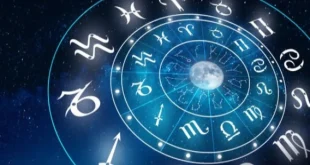
The case of suicide of Atul Subhash has now become a topic of discussion. In the suicide note, Atul has blamed his wife and in-laws for the death. Amidst all this, the Supreme Court has issued new guidelines on alimony or alimony after divorce. In such a situation, let us know what is the law regarding alimony in our country.
In the suicide note, Subhash has held his in-laws responsible.
The case of suicide of AI engineer Atul Subhash Modi in a company in Bengaluru is in the news. Atul Subhash committed suicide by hanging himself on 9 December. Let us tell you that Atul has blamed his wife Nikita Singhania and in-laws for his death. The special thing is that before his death, Atul had posted a video of about one and a half hour. Also wrote a 24 page suicide note. In this, Atul has alleged that his wife Nikita and her relatives were demanding money on some pretext. Atul also said that Nikita and his relatives have filed many false cases against him. Not only this, Subhash has also accused Jaunpur Family Court Judge Rita Kaushik of demanding a bribe of Rs 5 lakh to settle the case.
Questions raised on justice system in suicide note
Atul and Nikita got married in the year 2019 but separated after a year of marriage. In the suicide note, Atul has alleged that his wife Nikita had initially demanded Rs 1 crore for the settlement. Then it was increased to Rs 3 crore. Atul also said that his wife had filed the case on behalf of their minor son and sought maintenance allowance of Rs 2 lakh per month. Atul has also raised questions on the justice system in his suicide note.
What are these 8 factors?
Amidst all this, an important decision of the Supreme Court has come out regarding the maintenance allowance given to the wife. The bench of Justice Vikram Nath and Justice Prasanna B Worsale decided 8 such factors, keeping in mind the amount of maintenance should be determined. This is also called alimony.
1. Social and economic situation.
2. Needs of wife and dependent children.
3. Eligibility and employment status of wife and dependent children.
4. Earnings and assets of the applicant.
5. How did the wife live in her in-laws’ house?
6. Did you leave your job for family responsibilities?
7. Expenses incurred by the non-working wife in any kind of court cases.
8. Husband’s financial capacity, his earning and responsibility for maintenance.
The Supreme Court has clearly said in its decision that these 8 factors are not a formula but a ‘guideline’. It is important to keep this in mind when determining the alimony amount in case of divorce. While considering the case of Kiran Jyot vs. Anish Pramod Patel, the court said that in that decision the court had said that it is also important to keep in mind that the amount of maintenance should not be so high that the husband feels burdened. But this should happen so that the divorced wife can live a good life.
What does the rule of maintenance say in case of divorce?
The Act provides for maintenance allowances to women, children and parents. This provision was made in Section 125 of CrPC. There is a provision for this in section 144 of the new law Indian Civil Security Code (BNSS). This section says that no person can refuse to pay maintenance to his wife, children and parents in case of separation. The section specifies that if the wife, children and parents are unable to meet their expenses, the husband must pay her alimony every month.
Under what circumstances can a wife get maintenance?
Only a wife who has been divorced by her husband can receive monthly maintenance allowance. The wife should not have remarried after divorcing her husband. This section also provides that if the husband lives with another woman or promises to marry her, the wife can seek divorce on this ground. Even in such a situation, the husband will have to pay the maintenance expenses of his wife.
When will the wife not get maintenance?
If a wife separates from her husband without any reason or lives with another man or the wife separates by mutual consent, she will not be entitled to maintenance.
How much maintenance allowance will I get?
There is no fixed amount for this. The magistrate will determine the cost of maintenance. The amount of maintenance for the divorced woman, child or parents will be decided by the Magistrate. This amount can also be increased from time to time. However, a divorced woman will receive maintenance only until she remarries.
What happens if maintenance is not paid?
If a person does not pay maintenance to his wife, children or parents without any reason despite a court order, the magistrate can impose a fine on him. The Magistrate may order payment of the amount along with the fine. Apart from this, such a person can also be sentenced to imprisonment for at least one month.
Will I get a share in the property or not?
A divorced wife has no right over the property inherited by her husband. The Hindu Succession Act has been in force since 1956 regarding inheritance of property among Hindus. According to this law, the wife has no right to inherit the ancestral property (property) of her husband or in-laws. After divorce, the wife can only claim the property that belongs to her husband. That is the property which is owned by the husband. However, children can certainly claim their father’s property after divorce. If after divorce the husband marries another woman and has children with her. In such a situation, the court divides the property into equal parts.
 look news india
look news india
